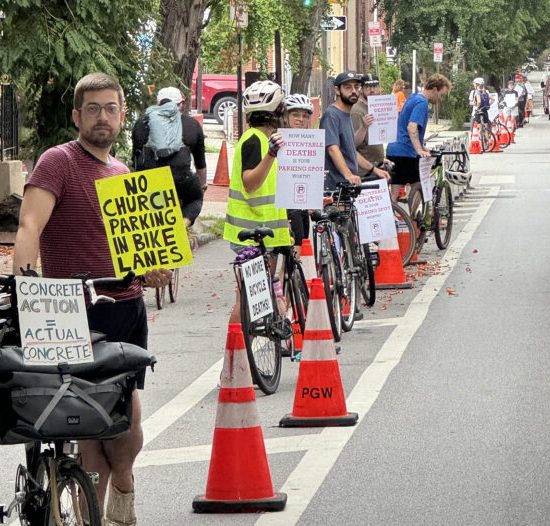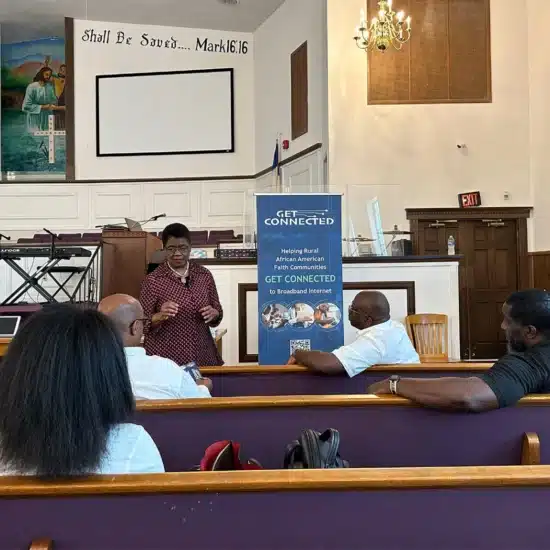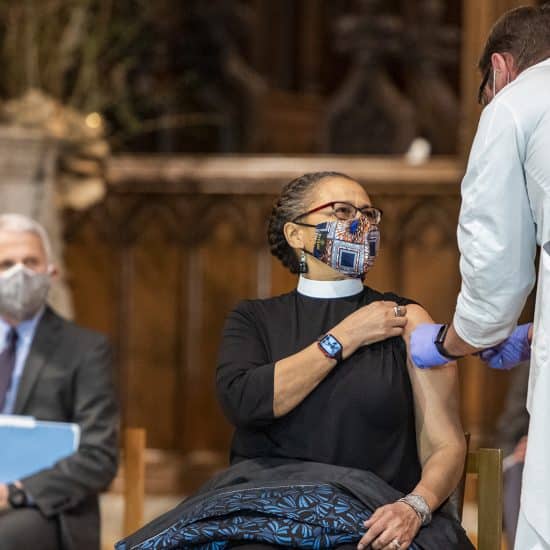Clarifying its identity is essential for a church committed to remaining in a downtown setting, congregational consultants and pastors of vibrant in-town churches observe.
"I think the most important question a congregation can ask is: Who is God calling us to be?" said Beth Kennett of the Center for Congregational Health in Winston-Salem, N.C. "And wherever they are located, they must add to the question: Who is God calling us to be in this particular place?"
Churches that understand who they are "may be able to more effectively and compassionately minister to the needs around them," said Kennett, the center's network coordinator for healthy faith communities.
"Downtown churches have to blow a certain trumpet," said George Bullard, strategic coordinator for the Columbia Partnership, a church consultancy. "If they blow an uncertain trumpet, they're in trouble."
Without clarifying their identity, churches may do good things in their context but won't know why they're doing them, said Bullard.
"They have to be clear about their identity, their core ideology, their understanding of the mission of the New Testament church and God's purpose for this specific church," he added.
A good place to start is identifying a church's strengths and matching those with surrounding needs, said Kennett, a former pastor in North Carolina.
"There is something real about knowing what your strengths are," she said. "One of the things I do is asset mapping—thinking creatively about your assets. That has been a powerful process in helping churches."
Before engaging in new mission initiatives, First Baptist Church in Knoxville, Tenn., evaluated its own assets, Pastor Bill Shiell said. Instead of first identifying the needs around them, "we have tried to ask, 'What are our strengths, and where do they match with a need?'" said Shiell.
"See what is in your hands specifically," agreed Warren Hoffman, pastor of Third Baptist Church in St. Louis. "Think entrepreneurially."
Through that process, Third Baptist discovered resources to support ministries in St. Louis's urban core.
"We received $550,000 from a daughter church which we outlived and have set up an Urban Ministry Fund that awards monies in the form of a grant," said Hoffman. "There monies are granted twice a year to church ministries and outside missions. This is relatively new, but the goal is to award approximately $25,000 a year to creative mission entrepreneurs in our church and outside the church in the St. Louis urban community, which have dreams of service to the city that we can affirm and assist."
Confidence in its strengths keeps a church from engaging in ministries for which it may not be best equipped, said Steve Wells, pastor of South Main Baptist Church in Houston.
"You have to say no with conviction so you can say yes with abundance," said Wells. "You have know who you are and when great ideas come along for which you lack skills, you don't say 'yes.' You realize, 'That's not us.' You have to make the right decisions."






